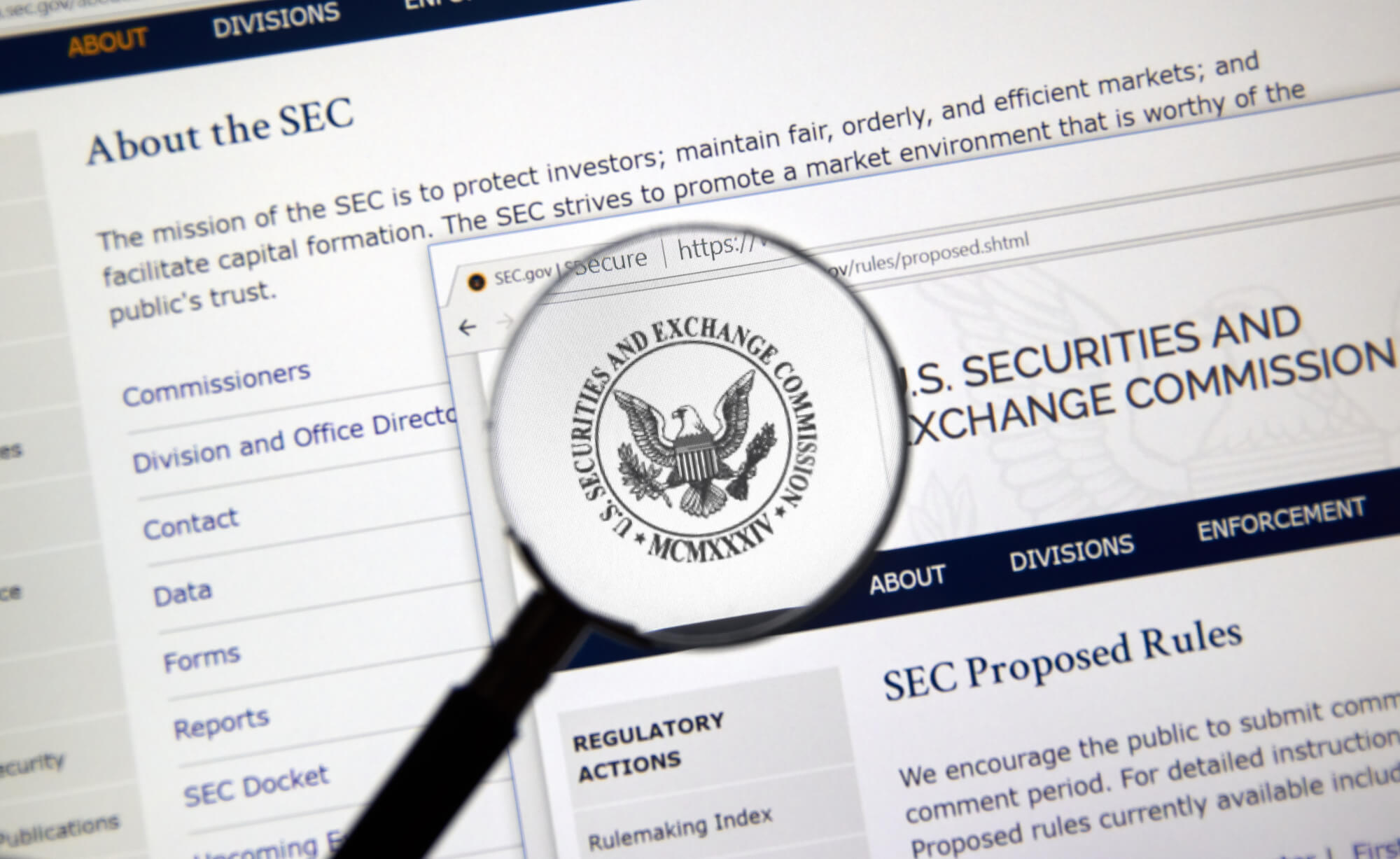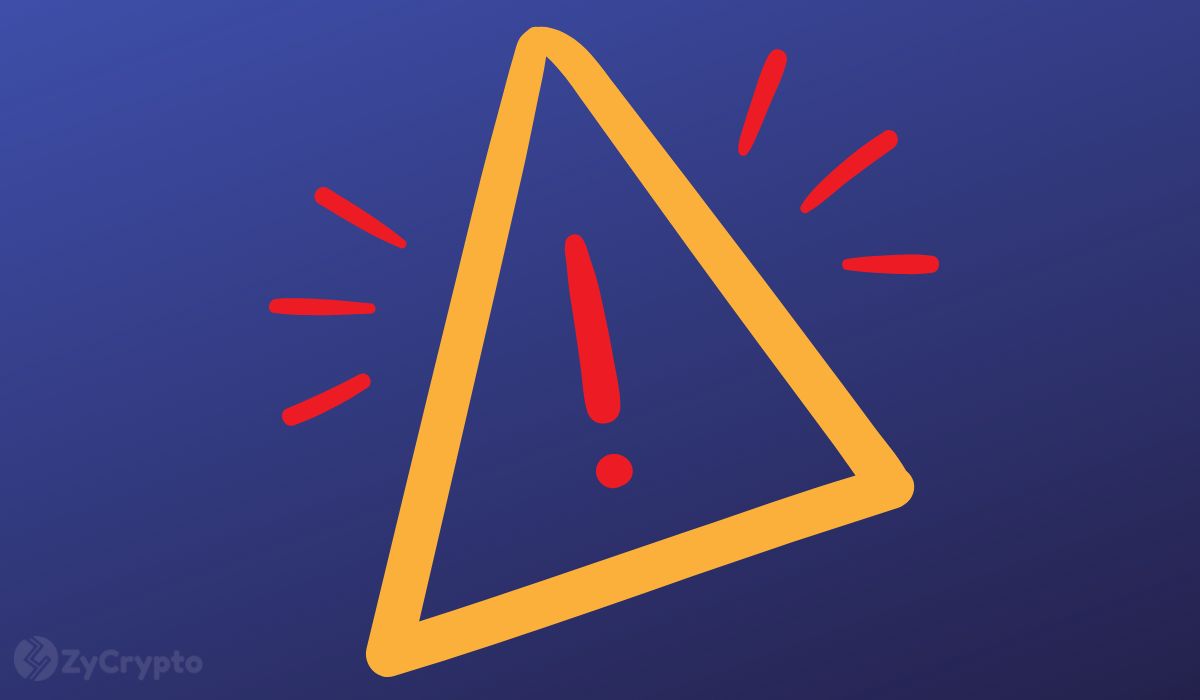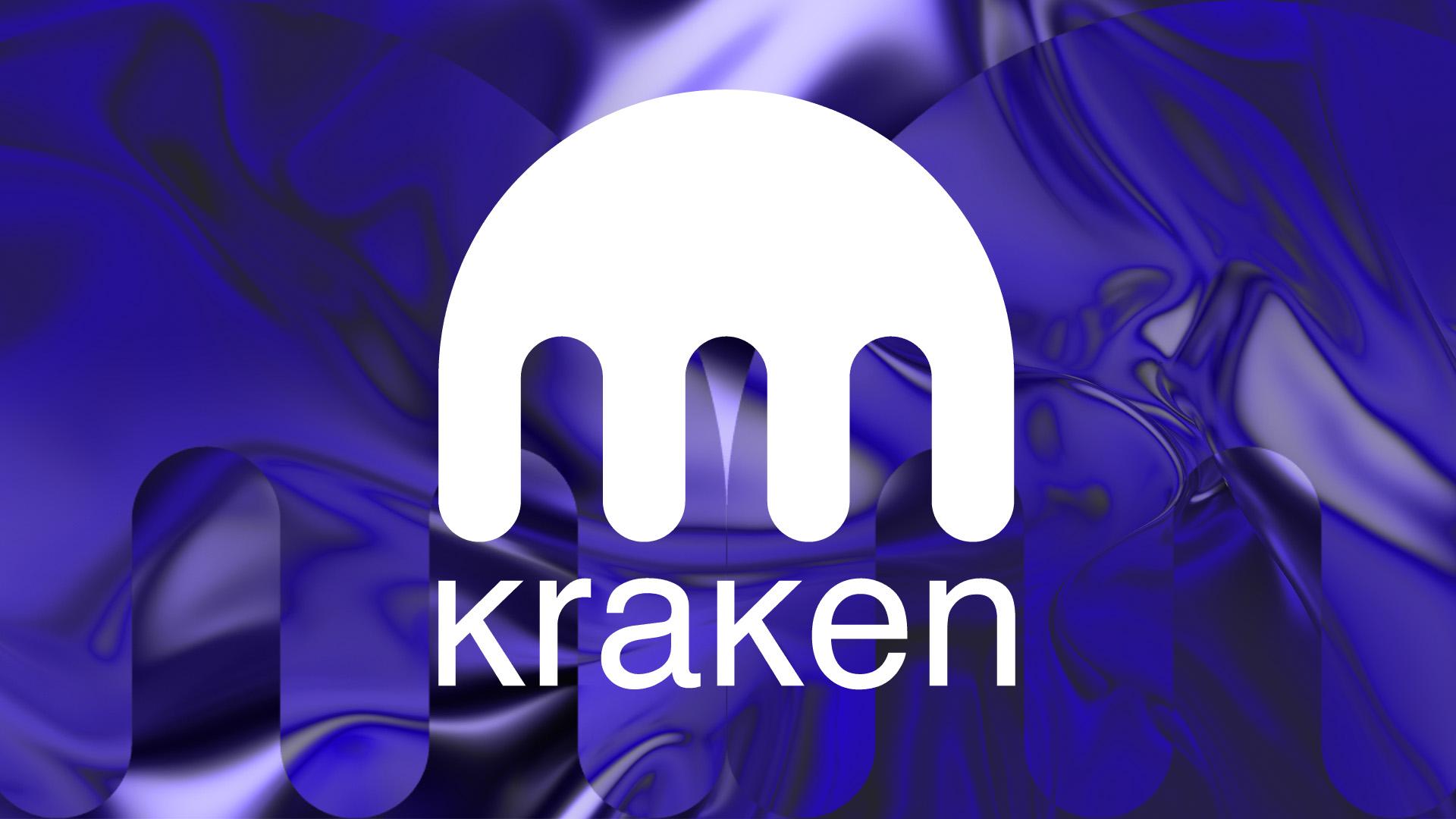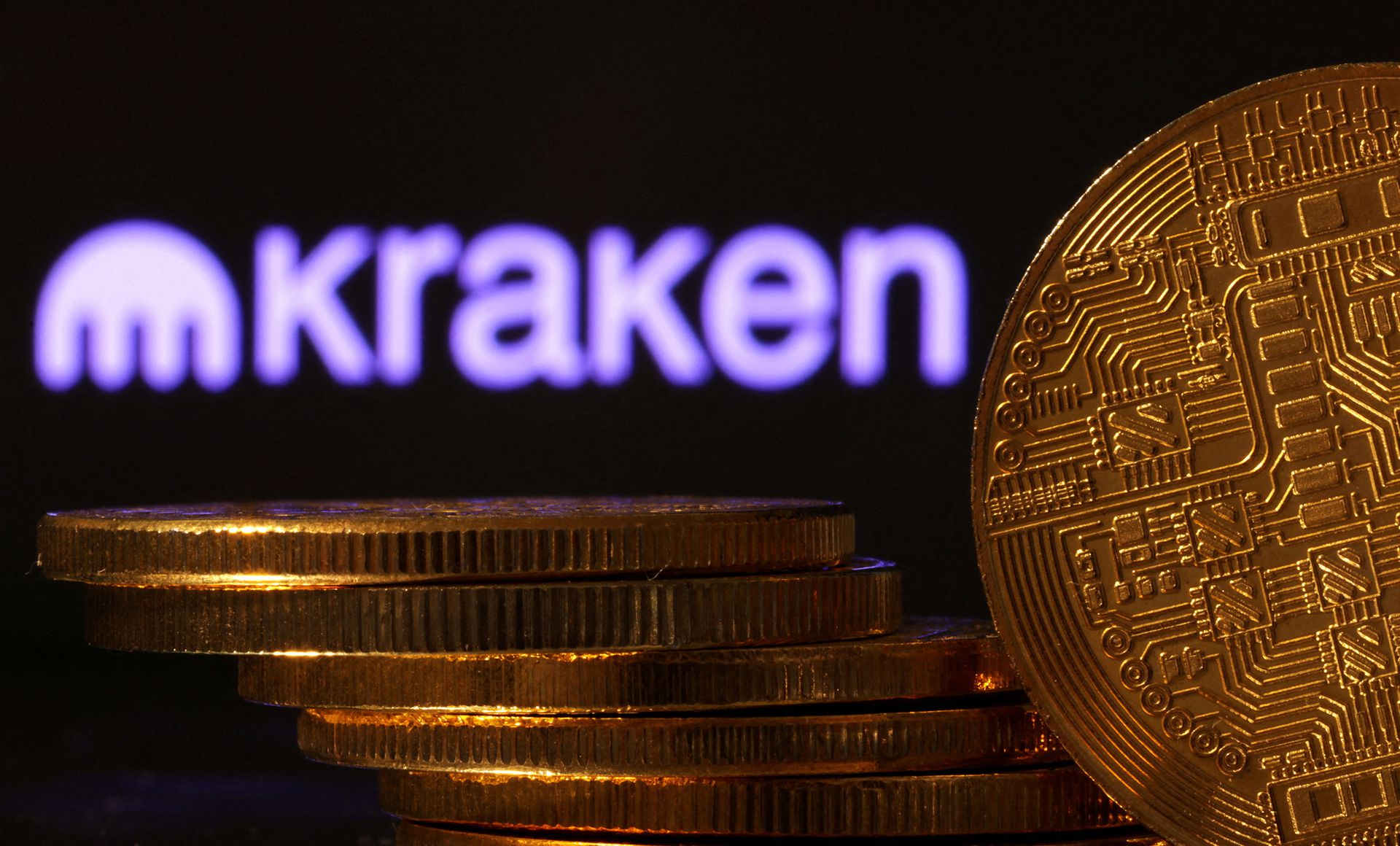In the world of cryptocurrencies, there are different ways for individuals to participate and earn rewards. One of these methods is through crypto staking, which has gained popularity in recent years. Staking, labeled as the ‘proof-of-stake’ alternative to the traditional ‘proof-of-work’ concept used by Bitcoin, allows individuals to set aside their digital assets as collateral, ensuring the security and efficiency of the blockchain network.
However, the SEC’s recent crackdown on Kraken, a well-known cryptocurrency exchange, sheds light on the complexities and regulatory challenges surrounding staking-as-a-service and the rewards associated with it. The SEC has charged Kraken with unlawfully offering retail derivatives on cryptocurrencies, considering them as securities, which means that Kraken has to face the full force of securities regulations.
This crackdown from the SEC brings to light the issue of securities laws and regulations on crypto staking. This year, the SEC brought a complaint against Kraken, alleging that the company violated federal securities laws by failing to register as a national securities exchange. The realities of cryptocurrencies as an asset class are intertwining with the existing regulations, and regulators are struggling to find a balance between supporting innovation and protecting investors.
Staking, as a concept, relies on validators who have to put up a certain amount of digital assets to prove ownership and secure the blockchain network. These validators, also known as stakers, run computers that validate transactions and create new blocks, essentially being the backbone of the proof-of-stake network. Validators are also rewarded for their participation, earning a return on their staked assets over time.
While staking offers a way for individuals to earn rewards and participate in the growth of the network, the SEC’s actions against Kraken highlight the need for clearer regulations and disclosures. As the popularity of staking-as-a-service grows, more and more individuals are entering the space, putting their assets and investments at risk. Clear guidelines and regulations become necessary to ensure transparency, investor protection, and the stability of the overall market.
In conclusion, the recent crackdown on Kraken by the SEC is just one example of the challenges and complexities surrounding crypto staking and its regulation. As staking gains momentum, regulators and industry players must work together to establish a framework that promotes innovation while also ensuring investor protection. The story of crypto staking is still being written, and its future will greatly depend on how these issues are addressed.
Understanding Crypto Staking
Crypto staking is a process in which individuals can participate in the validation and confirmation of transactions on a blockchain network. It involves locking up a certain amount of cryptocurrency as collateral to support the network’s operations and, in return, earning rewards for participating in the consensus mechanism.
One company known for offering staking-as-a-service is BlockFi. They allow investors to earn a yield on their crypto holdings by lending them to institutional borrowers. However, the recent regulatory crackdown by the SEC has brought these activities under scrutiny.
The SEC has charged BlockFi with allegations of selling unregistered securities in the form of interest-earning accounts. The company is required to settle the matter in court and potentially face penalties. This regulatory action against BlockFi raises questions about the legal framework surrounding staking and lending in the crypto industry.
Another company that has recently faced regulatory actions is Kraken. The SEC alleges that Kraken’s staking service, known as “Eth2 staking,” is considered a security and should have been registered with the SEC. Kraken is now in settlement discussions with the SEC, and the outcome of this case will have implications for the broader crypto industry.
While staking can offer attractive returns for investors, it also comes with risks. The SEC’s crackdown on unregistered staking services highlights the need for regulatory compliance in the crypto space. Investors should be aware of the potential legal implications and perform due diligence before participating in staking activities.
In conclusion, the recent regulatory actions against BlockFi and Kraken bring attention to the legality of staking-as-a-service and the need for regulatory oversight. Crypto companies should ensure compliance with securities laws, and investors should educate themselves on the risks and regulatory framework associated with staking. The outcome of these cases will shape the future of staking and lending in the crypto industry.
How Staking Works in the Cryptocurrency Market

Staking has become a popular way for cryptocurrency holders to earn passive income. In essence, staking refers to the act of participating in the validation and security of a blockchain network by holding and “staking” a certain amount of cryptocurrency in a digital wallet.
When users stake their cryptocurrency, they are essentially helping to maintain the network’s operations and security. In return for their participation, they receive rewards in the form of additional cryptocurrency tokens. These rewards are typically distributed in proportion to the amount of cryptocurrency staked, meaning that the more cryptocurrency a user stakes, the more rewards they can potentially earn.
One of the primary benefits of staking is that it allows users to put their cryptocurrency holdings to work and earn a return on their investment, without having to actively trade or sell it. This can be particularly advantageous for long-term investors who believe in the future potential of a particular cryptocurrency.
While staking can be a lucrative endeavor, there are certain risks and considerations that users should be aware of. For example, staking typically involves locking up a certain amount of cryptocurrency for a specific period of time. During this time, users may not be able to access or trade their staked cryptocurrency. Therefore, it is important for users to carefully consider the potential risks and rewards before deciding to stake their cryptocurrency.
Another consideration is the security and reliability of the staking platform or service being used. Users should choose reputable platforms that have a proven track record and offer adequate security measures to protect their staked cryptocurrency.
Furthermore, users should also consider the regulatory environment surrounding staking. While staking is generally considered to be a legitimate activity, certain jurisdictions may classify it as a form of securities offering, subjecting it to additional regulations and oversight. It is important for users to understand and comply with the applicable regulations in their jurisdiction to avoid potential penalties and legal issues.
In conclusion, staking is a popular way for cryptocurrency holders to earn passive income by participating in the validation and security of a blockchain network. By staking their cryptocurrency, users can earn rewards in proportion to the amount they stake. However, staking involves locking up cryptocurrency for a period of time and carries certain risks, such as the potential for regulatory scrutiny. Therefore, it is important for users to carefully consider the risks and rewards before engaging in staking activities.
Benefits of Staking Cryptocurrencies
Staking cryptocurrencies offers several benefits to investors. One of the main advantages is the opportunity to earn interest or yield on the invested assets. By participating in staking, investors can earn rewards in the form of additional tokens or coins.
Staking also provides an added layer of security and protection for investors. By staking their crypto assets, investors become active participants in the network, which helps maintain the stability and integrity of the blockchain. In return, they are rewarded for their contribution to the system.
Moreover, staking can be seen as a way to incentivize long-term holding of cryptocurrencies. Instead of selling their coins or tokens, investors have the option to stake them and earn rewards over time. This can help create a more stable market and reduce extreme price fluctuations.
Additionally, staking cryptocurrencies can be a way to participate in different programs or incentive systems offered by platforms like Kraken. These programs might provide additional benefits or perks to stakers, such as access to exclusive features or priority customer support.
From a regulatory perspective, staking cryptocurrencies is generally considered to be outside the scope of securities regulation. This means that staking does not usually fall under the same regulatory framework as selling securities or offering investment contracts. However, it is important for investors to do their own research and understand the regulations and requirements in their jurisdiction.
In conclusion, staking cryptocurrencies offers investors the opportunity to earn passive income, contribute to the security of the blockchain, and potentially enjoy additional benefits from platforms like Kraken. It is important for investors to weigh the potential risks and rewards and make informed decisions about participating in staking programs.
The Rise of Staking Platforms in the Crypto Industry

In the rapidly evolving world of cryptocurrencies, staking platforms have gained significant popularity for their ability to provide users with the opportunity to earn passive income by participating in the validation and security of blockchain networks. Staking is becoming a preferred method for crypto investors to grow their assets and engage with the crypto ecosystem in a meaningful way.
Staking, also known as proof-of-stake, is a consensus mechanism used by many blockchain networks as an alternative to the traditional proof-of-work model. Instead of relying on computational power, staking requires users to lock up a certain amount of their cryptocurrency holdings as collateral in order to validate transactions and secure the network. In return, participants are rewarded with additional coins or tokens.
This concept of staking has led to the emergence of various staking platforms, where users can delegate their staking power to a third-party service provider who manages the technical aspects of the process. These platforms offer a user-friendly interface and a seamless experience to individuals who may not have the technical expertise or resources to stake on their own.
Staking platforms also provide an additional layer of security, as they typically implement safeguards and monitoring systems to protect users’ funds. Moreover, they ensure that participants receive their staking rewards accurately and in a timely manner. This feature enhances trust and acts as an incentive for individuals to delegate their assets to these platforms.
Additionally, staking platforms often offer other services, such as lending and borrowing, whereby users can earn interest on their staked assets or borrow against their collateral. This further enhances the value proposition of staking platforms, creating a more comprehensive ecosystem for cryptocurrency holders.
Overall, the rise of staking platforms represents a shift in how individuals can engage with cryptocurrencies. It offers an alternative way to earn income from crypto assets, promotes decentralization, and strengthens the security of blockchain networks. As the crypto industry continues to evolve, staking platforms will play a crucial role in shaping the future of digital finance.
Staking vs. Mining: Key Differences and Advantages
When it comes to earning cryptocurrency, there are two popular methods: staking and mining. While both approaches have their own unique advantages, there are key differences that set them apart.
Proof-of-Stake vs. Proof-of-Work
One of the main differences between staking and mining lies in the underlying consensus algorithm. Staking utilizes a proof-of-stake (PoS) mechanism, whereas mining employs a proof-of-work (PoW) algorithm.
With PoS, individuals can earn crypto by holding and “staking” their assets in a supported wallet. This is in contrast to mining, where users need to solve complex mathematical problems using powerful hardware and electricity to validate transactions.
Advantages of Staking
Staking offers several advantages over traditional mining. Firstly, staking requires much less energy consumption compared to mining. This makes it a more environmentally friendly option.
Secondly, staking-as-a-service providers have emerged, allowing users to participate in staking without having to set up and maintain their own staking program. This provides convenience and accessibility for those who may not have the technical knowledge or resources to mine cryptocurrencies.
In addition, staking provides a clear incentive for holders to keep their assets in circulation and participate in network governance. This helps to strengthen and secure the blockchain network.
Regulations and Compliance
While the SEC’s recent actions against Kraken and other providers have shed light on the need for regulation in the crypto space, staking has not faced the same level of scrutiny as mining. Staking contracts and staking-as-a-service providers generally fall under a different regulatory framework.
However, it is important to note that this lack of regulation does not mean staking is entirely exempt from oversight. Some jurisdictions may require staking providers to comply with certain regulations, particularly in regards to disclosures and consumer protection.
Conclusion
In conclusion, staking and mining represent two distinct ways to earn cryptocurrency. Staking offers advantages such as lower energy consumption, accessibility through service providers, and a clear incentive for asset holders. While regulations surrounding staking may be different from those in the mining space, it is important for participants to understand the realities and potential obligations associated with staking.
The SEC’s Recent Actions Against Kraken

Recently, the Securities and Exchange Commission (SEC) has taken actions against Kraken, a popular cryptocurrency exchange platform. The SEC has accused Kraken of offering unregistered securities to its customers through its lending and staking programs.
One of the main areas of concern for the SEC is the staking program offered by Kraken. Staking involves holding and “staking” cryptocurrencies in a wallet to support the operations of a blockchain network. Validators, who are responsible for verifying and validating transactions on the network, can earn rewards for staking their tokens. However, the SEC argues that the staked tokens should be considered securities and should be registered.
In addition to the staking program, the SEC also raised concerns about Kraken’s lending program. The lending program allowed Kraken customers to lend their cryptocurrencies to others in exchange for interest payments. The SEC claims that the interest payments should be considered as securities and should be registered.
The SEC’s actions against Kraken are part of a broader crackdown on cryptocurrency platforms and companies that are not complying with securities regulations. SEC Chairman Gary Gensler has been vocal about the need to regulate the cryptocurrency industry to protect investors and ensure fair and transparent markets.
While the SEC’s actions against Kraken may seem like a heavy-handed approach, it is important to understand the reasoning behind their actions. The SEC’s main concern is to ensure that investors are protected and that the cryptocurrency industry operates within a framework that is clear and regulated. By taking action against Kraken, the SEC is sending a clear message to other platforms and companies that they must comply with securities regulations or face penalties.
In conclusion, the recent actions taken by the SEC against Kraken highlight the need for regulation in the cryptocurrency industry. The SEC is taking steps to enforce securities laws and protect investors from potential risks and fraud in the crypto space. It is important for cryptocurrency platforms and companies to understand and comply with the SEC’s regulations to avoid legal consequences and maintain the trust of investors.
Overview of the SEC’s Regulation on Staking
The Securities and Exchange Commission (SEC) plays a significant role in the regulation of the cryptocurrency market. Recently, the SEC has been focusing much of its attention on the practice of crypto staking and related services provided by intermediaries. Staking, in the context of cryptocurrencies, refers to the process of participating in the proof-of-stake (PoS) consensus mechanism to support the network’s operations and receive rewards in return.
The SEC’s scrutiny on crypto staking stems from concerns regarding the potential violation of securities laws. While staking is more energy-efficient than traditional proof-of-work (PoW) mining, it doesn’t necessarily mean that it falls outside the SEC’s regulatory purview. Staking involves individuals or entities holding tokens and, in many cases, receiving additional tokens as rewards. This has raised questions about whether these tokens can be considered securities and whether staking itself constitutes a form of investment contract.
In response to these concerns, the SEC has taken action against platforms offering staking-as-a-service, as well as certain lending programs linked to staking. For example, the SEC recently filed a complaint against Kraken, a major cryptocurrency exchange, alleging that the platform was offering unregistered securities through its staking services. The SEC is seeking penalties and wants Kraken to cease offering these services immediately.
The SEC’s crackdown on staking highlights the agency’s message that crypto platforms need to comply with existing securities regulations. This means that platforms offering staking services, particularly if they involve the offer or sale of tokens that can be deemed securities, may need to register with the SEC or qualify for an exemption. Moreover, platforms need to provide adequate disclosures to help investors understand the risks and realities associated with staking.
SEC Chair Gary Gensler has been vocal about his concerns regarding staking and other aspects of the cryptocurrency market. In a recent speech, Gensler stated that the SEC is looking into whether staking platforms are engaging in market manipulation or otherwise violating securities laws. He emphasized the need for greater regulatory oversight to protect investors and maintain market integrity.
As the SEC’s regulation on staking continues to unfold, cryptocurrency platforms and their users must pay close attention to the agency’s actions and requirements. Compliance with securities laws is essential in ensuring the legitimacy and sustainability of the crypto industry. The SEC’s approach to staking as an investment activity could have significant implications for the future of the asset class, and market participants should be prepared to adapt to potential changes in regulations and enforcement.
The Importance of Regulatory Compliance in the Crypto Staking Market

One of the fundamental aspects of the crypto staking market is the need for regulatory compliance. Regulatory frameworks play a crucial role in ensuring the security and trustworthiness of staking platforms.
Regulators, like the SEC, are tasked with overseeing the operations of crypto platforms to protect investors and maintain fair markets. In the case of the recent actions against Kraken and other platforms, the SEC alleges that these platforms have been offering unregistered securities to investors.
Staking works by participants locking up their tokens, which are then used to validate and add blocks to the blockchain. In return, participants receive rewards, often in the form of additional tokens. Staked tokens provide an incentive for participants to behave honestly as they have a stake in the system’s integrity.
Without proper regulatory compliance, staking-as-a-service providers might operate in a legal gray area, potentially exposing investors to risks. The lack of a robust regulatory framework for staking could lead to situations where fraudulent actors take advantage of unsuspecting participants.
Regulators aim to ensure that investors’ funds are adequately protected and that they have access to accurate and transparent information before engaging in staking programs. Additionally, regulatory compliance helps establish the legitimacy of staking platforms and fosters trust among investors and users.
It is important to note that not all staking activities fall under the purview of securities regulations. Some proof-of-stake blockchains, like Ethereum 2.0, do not involve the sale of tokens or promise any specific return on investment. In such cases, staking may be considered more akin to lending or providing computing resources.
However, platforms like BlockFi, which offer staking-as-a-service, may face scrutiny if the rewards they offer are structured in a way that resembles a security. In the case of BlockFi, the SEC alleges that the platform’s interest-earning accounts and Staking-as-a-Service program are unregistered securities.
In conclusion, regulatory compliance is essential in the crypto staking market to protect investors, ensure market integrity, and foster trust. It helps establish a framework for legitimate staking platforms to operate while identifying and addressing potential risks. This ensures that the growing staking market can flourish within the confines of existing regulatory frameworks, creating a safer environment for all stakeholders.
Potential Impacts of the SEC’s Actions on Staking Services

The recent actions taken by the SEC against Kraken and other crypto exchanges have raised concerns about the potential impacts on staking services. Staking, which is a process that involves holding and validating transactions on a proof-of-stake blockchain, has become increasingly popular among crypto investors and miners.
While staking services, like the one offered by Kraken, provide an opportunity for individuals to earn rewards for participating in the network, the SEC’s actions could potentially disrupt these services. The SEC has argued that certain staking programs may be considered securities and subject to regulatory oversight.
For staking providers, the SEC’s actions could mean that they will need to comply with additional regulations and requirements. This could include registering as a security, providing more public disclosure, and potentially facing penalties for non-compliance. It might also lead to decreased interest from individuals and companies in offering staking-as-a-service.
Furthermore, the SEC’s actions might have an impact on the rewards that stakers receive. In the case of Kraken, the SEC’s complaint alleges that the exchange failed to provide customers with information about the rewards they could earn through staking. This lack of transparency raises concerns about the security of staking-as-a-service and could potentially lead to a decrease in participation from investors.
For individuals who have been participating in staking through platforms like Kraken, the SEC’s actions could have immediate consequences. If the court order shuts down or restricts specific staking services, individuals may no longer be able to earn rewards for their participation. This could be especially problematic for those who rely on staking as a source of income.
Future Outlook for Crypto Staking and Regulatory Developments
The future of crypto staking is still uncertain, as regulatory developments continue to shape the landscape. The recent actions taken by the SEC against Kraken, a popular cryptocurrency exchange, highlight the importance of compliance and disclosure in the staking ecosystem.
Staking, which is based on the proof-of-stake (PoS) consensus mechanism, allows participants to lock up their assets in order to support the functioning of a blockchain network. In return, they are rewarded with additional tokens for their contribution. However, this process may come under scrutiny as regulators aim to ensure investor protection and prevent potential misuse of staking systems.
While staking can be a lucrative way to earn passive income, it is not without its risks. The lack of regulatory clarity has made it difficult for investors to fully understand the potential risks involved and the level of security provided by staking platforms. This has led some experts to argue that staking should be treated as a security, and therefore, subject to appropriate regulations.
As regulatory agencies continue to grapple with the classification of staking as an investment or a security, it is essential for market participants to stay informed about the evolving regulatory landscape. The SEC’s recent actions against Kraken could be a message to other platforms that offer staking services, highlighting the need for proper disclosure and compliance.
In the coming years, we may see new regulations and guidelines emerge that aim to provide clearer guidelines for staking activities. This could include requirements for staking platforms to register as securities issuers, undergo regular audits, and provide transparent disclosures about the risks involved in staking. Additionally, regulators may establish guidelines to ensure that staking platforms settle any disputes with users, pay out rewards in a timely manner, and offer appropriate investor protections.
Overall, the future outlook for crypto staking will depend on the regulatory developments that come into effect. While staking will likely continue to be an attractive feature for crypto investors, it is crucial for market participants to understand the potential risks and comply with any regulatory requirements that may be imposed in the future.
Key Takeaways: Understanding Crypto Staking and the SEC’s Actions
Staking is the proof-of-stake consensus mechanism used by cryptocurrencies, where investors can help secure the network and earn rewards by holding their tokens in a wallet and participating in the validation process. The recent actions by the SEC against Kraken, a popular cryptocurrency exchange, serve as a reminder of the regulatory challenges within the crypto space.
The SEC’s Actions:
The SEC has been cracking down on unregistered securities offerings and bringing enforcement actions against companies that violate securities laws. In the case of Kraken, the SEC alleges that the exchange offered staking without properly registering the tokens as securities, which violates the law.
The SEC’s enforcement actions against companies like Kraken highlight the need for proper disclosures and compliance with securities regulations. It is important for investors to understand the potential risks and regulatory requirements associated with participating in staking-as-a-service.
Understanding Crypto Staking:
Staking allows cryptocurrency holders to earn rewards for participating in the validation process. By staking their tokens, individuals contribute to the security and decentralization of the network. This process involves locking up a certain amount of tokens, typically a percentage of the total supply, in order to become a validator.
Validators play a crucial role in verifying transactions, maintaining network consensus, and securing the blockchain. In return for their efforts, validators are rewarded with additional tokens. The rewards can vary depending on factors like the total number of validators, the staking duration, and the network’s inflation rate.
The Realities of Staking-as-a-Service:
Staking-as-a-service platforms offer users the ability to participate in staking without having to set up and manage their own validator nodes. These platforms charge a fee, usually a percentage of the rewards earned, for providing this service. However, investors should be aware that staking-as-a-service introduces some potential risks.
Firstly, investors are entrusting their tokens to the platform, which means there is a risk of loss or theft. Secondly, the platform’s security and reliability are paramount. If the platform experiences technical issues or downtime, investors may not receive their rewards or could potentially lose their tokens. Additionally, investors should carefully review the platform’s terms and conditions, including any potential fees and the process for withdrawing their staked tokens.
It’s important for investors to conduct their own research and understand the risks and benefits of participating in staking before getting involved. Compliance with securities regulations and ensuring proper disclosures are critical to avoid legal issues.
Frequently Asked Questions:
What is crypto staking?
Crypto staking is a process where cryptocurrency holders can lock up their coins in a wallet to support the operations of a blockchain network. In return for staking their coins, users receive rewards in the form of additional coins.
Why did Kraken shut down crypto staking in the US?
Kraken shut down crypto staking in the US following actions from the Securities and Exchange Commission (SEC). The SEC took issue with the way Kraken was offering and marketing its staking product, as it considered it to be a security offering that required registration with the agency.
What was the fine that Kraken had to pay?
Kraken had to pay a fine of $30 million as part of its settlement with the SEC. The SEC accused Kraken of offering and selling digital asset securities without proper registration, making false statements about its service, and failing to provide adequate disclosures to customers.
What are the consequences of the SEC’s actions against Kraken?
The SEC’s actions against Kraken have resulted in the company shutting down its crypto staking service in the US. This means that US customers will no longer be able to participate in staking activities on the Kraken platform.
Is crypto staking legal in the US?
The legality of crypto staking in the US depends on how it is offered and marketed. If staking is considered a security offering, it may need to be registered with the SEC. The recent actions against Kraken indicate that the SEC takes a strict stance on unregistered securities offerings.
Are there any alternatives to Kraken for crypto staking in the US?
Yes, there are several other platforms that offer crypto staking services to US customers. However, it’s important to ensure that these platforms comply with the regulations set by the SEC to avoid any potential legal issues.
What can investors do to protect themselves in light of the SEC’s actions?
Investors can protect themselves by conducting thorough research on the platforms they use for crypto staking and ensuring that these platforms comply with the regulations set by the SEC. They can also stay updated on any regulatory changes and consult with legal professionals if needed.
Video:
SEC Sues Coinbase & Binance Operation Choke Point 2.0 (Secret Plan: JP Morgan Steals Coinbase?)
BREAKING: Binance in ⚠️ BIG TROUBLE


